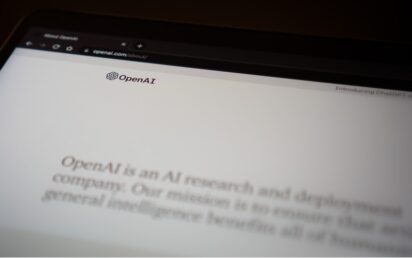The adoption of generative artificial intelligence could add 1.2% to the level of annual UK productivity – equivalent to £31 billion at current levels.
A new KPMG report – Generative AI and the UK labour market – shows a relatively small but significant overall effect of the technology, which could impact around 2.5% of tasks performed across the UK, allowing workers to be redeployed to other tasks and activities.
The report finds that the impact across different occupations is relatively varied, while 10% of jobs may be facing the most significant impact, with more than 5% of their tasks affected, another 60% of jobs could face little to no direct effect from generative AI.
The wider implications that generative AI may have on the economy and society are highly uncertain. Set against the underlying impacts on employment and productivity, the wider social impacts may warrant a high degree of caution in how regulators and policymakers approach these technologies.
“It will take time for the new technology to be adopted across the economy. Changes to working practices, skills, and significant levels of digital investments are required to unlock the productivity benefits,” said Yael Selfin, chief economist at KPMG UK.
“While we do not anticipate many job losses as a result, changes to work practices of some occupations could still lead to short-term skill mismatches, as the labour market adjusts to the new technology. Additional support will be needed to facilitate the transition of affected workers to new occupations.”
Paul Henninger, Head of Connected Technology at KPMG UK, added: “The benefits of generative AI will be huge if we keep people at the centre of our thinking about it. Used in a responsible way, it will accelerate our work, saving people and businesses time and money by removing repetitive tasks and bringing data and insights seamlessly into how we make decisions.
“While there are concerns about the impact of generative AI on jobs, it will likely be used as an enabler of our strategies and processes. Roles will change to work with the technology.”
The report suggests that up to 43% of the tasks currently performed by authors, writers and translators could automated; 26% of those performed by programmers and software development professionals; 25% of PR and comms tasks; 23% of those carried out by IT user support technicians; 15% of graphic design work; 11% of tasks performed by personal assistants and other secretaries; 11% of legal work; and 10% of research in business and related fields.
However, there is a wide swathe of occupations that are likely to see little to no direct impact from generative AI technologies. Of the 412 occupational categories examined in the report, around 60% are expected to see almost no impact from generative AI. These include many of the occupations in retail and customer services, hospitality, construction and manufacturing.
“It is important to note that the impact of generative AI, while significant for some occupations, does not appear yet to have the potential to encompass many others, which limits the overall impact on the economy,” said Selfin.
“However, the technology may facilitate faster progress in areas such as programming and R&D, which in turn could generate a significant boost to productivity, beyond the impact on the immediate tasks affected by this technology.”


